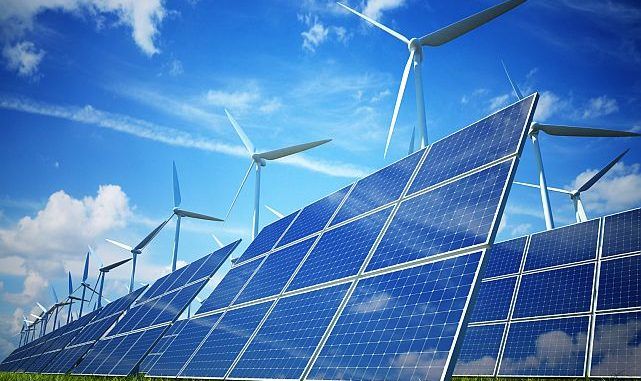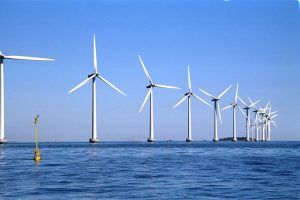
The benefits of renewable energy is not just environmental, as it is in the west, but it could be overwhelmingly advantageous for emerging industrial nations.
In the East reduced cost of manufacturing could enable countries such as India and China to experiment with renewable technologies such as sun, wind and water in a cost effective way to generate alternate sources of power than the traditional fossil fuel technology.
China and India could throw their economic might into a renewables revolution that could trigger a global chain reaction known as “circular and cumulative causation.” The new revolution in renewable energy is supposedly not driven by a tax on carbon emissions or subsidies for clean energy, and is compared to the world changing Industrial Revolution of 18th and 19th century that eventually improved people’s standards across the board.

BYPASS THE CENSORS
Sign up to get unfiltered news delivered straight to your inbox.
You can unsubscribe any time. By subscribing you agree to our Terms of Use
Taipei Times reports:
Energy from the wind and sun can offset the need to burn fossil fuels, helping to mitigate climate change.
However, in China and India, renewable energy is viewed in a remarkably different fashion. The relatively rapid transition away from fossil fuels in both countries is driven not so much by concerns about climate change as by the economic benefits renewable energy sources are perceived as conveying.
Indeed, while the economic benefits of renewables can be attractive to advanced economies such as Germany or Japan — both of which are rapidly moving away from fossil fuels — the advantages for emerging industrial giants are overwhelming. For India and China, an economic trajectory based on fossil fuels could spell catastrophe, as efforts to secure enough for their immense populations ratchet up geopolitical tensions. Aside from increased energy security, a low-carbon economy would promote domestic manufacturing and improve local environmental quality by, for example, reducing urban smog.
To be sure, fossil fuels conferred enormous benefits on the Western world as it industrialized over the past 200 years. The transition to a carbon-based economy liberated economies from age-old Malthusian constraints. For a group of select countries representing a small slice of the global population, burning fossil fuels enabled an era of explosive growth, ushering in dramatic improvements in productivity, income, wealth and standards of living.
For much of the past 20 years, China and India led the charge in claiming the benefits of fossil fuels for the rest of the world.
However, recently, they have begun to moderate their approach. As their use of fossil fuels brushes up against geopolitical and environmental limits, they have been forced to invest seriously in alternatives — most notably, renewables. In doing so, they have put themselves in the vanguard of a planetary transition that in a few short decades could eliminate the use of fossil fuels altogether.
The economic arguments advanced against renewable sources of energy — that they can be expensive, intermittent, or not sufficiently concentrated — are easily rebutted. In addition, while renewables’ opponents are legion, they are motivated more by interest in preserving the “status quo” of fossil fuels and nuclear energy than by worries that wind turbines or solar farms would blot the landscape.
In any case, those wishing to halt the expansion of renewables are unlikely to triumph over simple economics. The renewable energy revolution is not being driven by a tax on carbon emissions or subsidies for clean energy; it is the result of reductions in the cost of manufacturing that is soon to make it more cost-effective to generate power from water, wind and the sun than from burning coal.
Countries can build their way to energy security by investing in the industrial capacity needed to produce wind turbines, solar cells and other sources of renewable energy at scale. As China and India throw their economic weight into the renewables industrial revolution, they are triggering a global chain reaction known as “circular and cumulative causation.”
Read more: taipeitimes.com/News/editorials/archives


